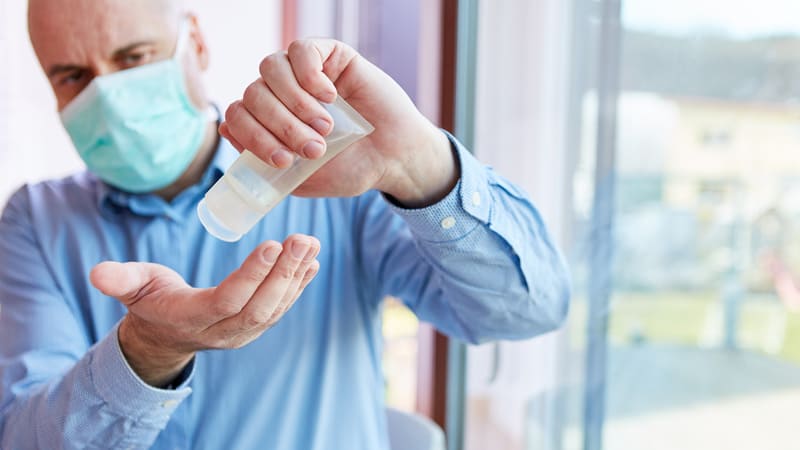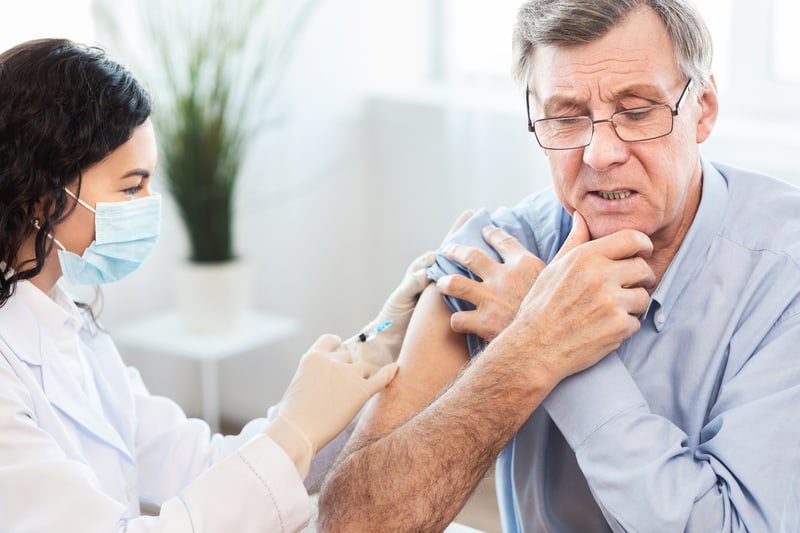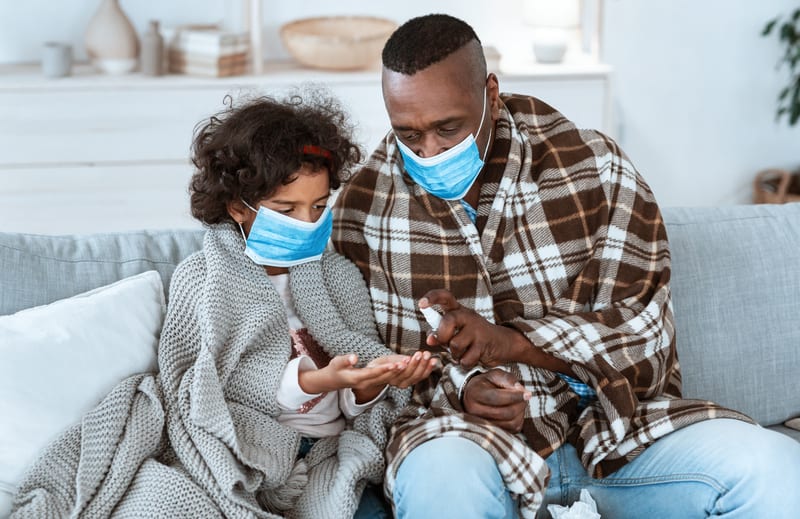5 Ways to Reduce Your COVID-19 Risk This Fall & Winter

2020 will go down in history as the year of COVID-19. We’ve all dealt with COVID-19 as a constant presence in our lives since February. And, as we expected, it’s not going away completely until a vaccine is fully developed and distributed on a broad scale. Unfortunately, that’s unlikely to happen before 2021.
That means, as we get deeper into the fall and head toward winter, COVID-19 will remain in our lives. And because of the colder weather, we can reasonably expect an increase in cases. Most respiratory illnesses, the flu included, return as the weather cools and we spend more time indoors. There’s no reason to expect COVID-19 will behave differently.
So, what should you be doing to minimize your COVID-19 risk this fall and winter?
1. Keep doing what you’ve been doing — wear a mask, socially distance, wash your hands, avoid large crowds, etc.
These have all become staples of our everyday life, because they are the easiest and most effective way to reduce your risk of contracting or spreading the virus. So don’t let up. Keep wearing your masks. Stay at least six feet away from people whenever possible. Wash your hands whenever you think about it (or use hand sanitizer). Avoid large crowds.
As the weather gets colder, we’ll be spending more time inside, which immediately raises the risk of contracting the virus, particularly if whatever building you are in has poor ventilation. Doubling down on these strategies to mitigate the spread remains incredibly important. It’s the first line of defense.

2. Get your flu shots (and other necessary vaccines).
Flu season is here and now is the time to get your flu shot. Based on the flu season in the southern hemisphere, there is hope that we will avoid the worst-case scenario of both influenza and COVID-19 raging at the same time, but that remains to be seen. There is one effective way to make sure you are as protected as possible from influenza – get your flu shots.
Not only will it protect you from the flu, which kills thousands of people every year, but it will also help reduce the burden on our medical providers dealing with both flu and COVID patients.
While you’re at it, make sure you are up to date on all your vaccines, too. The less risk you have of contracting any kind of virus, the better. This is especially true for older people who are more at risk of not just COVID, but pneumonia and shingles that could be layered onto a COVID infection.
3. Keep COVID out of your home and your car.
We spend a lot of time in our homes and in our car. So, it’s important that we work to limit the risk of contracting or spreading the virus in those high-traffic areas.
Sanitize your hands before getting into your car, then wash your hands as soon as you walk in the door from being out and about. Regularly wipe down high-touch surfaces, such as doorknobs, light switches and faucets at home and door handles, steering wheel and gear shifters in the car.
As we head into winter and we all crank up our heat to stay warm, make sure your air filters are clean and replace as recommended by the manufacturer. If the weather is unseasonably warm, think about opening a window to increase airflow.
If you order takeout food, take it out of the containers immediately, throw them away, and use your own dishes. And make sure you wash your mask every couple of days.

4. Plan for the holidays.
The holidays will be here before we know. And with that comes family gatherings and holiday get-togethers. Even during the year of COVID-19, let’s not be naive enough to believe they won’t happen at all. So it’s important to start thinking about what you can do to reduce your risk as best as possible during the holidays.
That giant 50+ person holiday reunion you have every year? Definitely not such a good idea right now. Consider smaller in-person groups of 10 or fewer people or a virtual Zoom get-together.
Normally take a short flight to visit relatives? It might be best to tough it out in the car this year. If you do have to take a flight, wear an N95 masks, gloves, and avoid touching your face until you leave the airport.
Able to enjoy a meal outside? Definitely take advantage of that and move the party outdoors. It might also be time to let your family’s younger generation take over cooking duties. Have the more at-risk people watch the little ones and play games outdoors while the younger and less at-risk generation handles the cooking inside. If you haven’t already and can afford to do so, this might also be a good time to purchase a patio heater or fire pit to keep warm.
And with any kind of gathering, make sure masks are available and worn, especially indoors, and people are washing their hands. Of course, encourage anyone who feels even just a little sick to sit this one out.
5. Make improving your health a priority.
The best way to increase your body’s resilience to COVID-19 is to make it healthier. Eat better food. Exercise regularly. Get a good night’s sleep. These things help boost your immune system, so that your body is as prepared as possible to defend itself in the event you do contract the virus. And as we enter the fall and winter, it remains more important than ever.
It’s not too late to get started. Start eating a low-carb diet that reduces your sugar intake and inflammation in your body. Limit your alcohol consumption. Get at least 30 minutes of exercise, five days a week. Make sure you get 7-8 hours of sleep. Our health coaches focused all September on what you can do to boost your immune system. Check out all of our articles and videos here.
The first step for you might be sitting down with your doctor. That’s where concierge medicine can be beneficial. Because concierge doctors see fewer patients, they have more time to develop meaningful, personal relationships with their patients. It’s one of the primary differences between concierge medicine and traditional primary care that has been highlighted during COVID-19. Your doctor has time to view your entire health picture, including your personal risk factors and lifestyle, and develop a personalized plan to help you stay healthy this fall and winter.